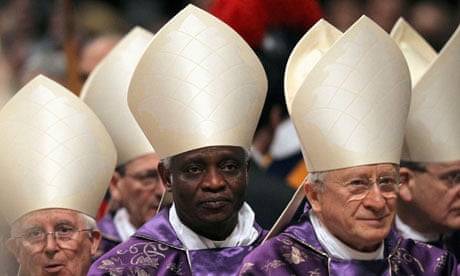Ghana: A Nation at the Crossroads
Cardinal Peter Appiah Turkson, a prominent Ghanaian cleric and former president of the Vatican’s Dicastery for Promoting Integral Human Development, has raised alarm over the state of Ghana, warning that the nation risks becoming a failed state. This assertion reflects growing concerns about political stability, economic challenges, and social unrest in a country once celebrated for its democratic values and relative peace.
Ghana, often hailed as a beacon of democracy in West Africa, has faced increasing difficulties in recent years. The nation has seen a rise in corruption, mismanagement, and a lack of accountability among political leaders. Turkson’s comments echo the frustrations of many citizens who feel disenfranchised by a system that appears to prioritize the interests of a few over the welfare of the majority. Corruption scandals have eroded public trust, leading to disillusionment with governance.
Economically, Ghana has been grappling with significant challenges. Once a promising economy fueled by cocoa, gold, and oil exports, the country has faced inflation, currency depreciation, and high levels of public debt. The COVID-19 pandemic exacerbated these issues, disrupting supply chains and increasing unemployment. As everyday citizens struggle with rising costs and diminishing opportunities, discontent has grown, fueling protests and calls for government accountability.
Socially, Ghana is witnessing increasing divisions. Ethnic and regional tensions, often manipulated by political leaders, have become more pronounced. The youth, who constitute a significant portion of the population, are particularly restless. With limited job prospects and a perception that their voices are unheard, many are turning to activism or even violence to express their frustrations. Cardinal Turkson’s warning highlights the urgent need for inclusive dialogue to address these underlying issues before they escalate into deeper conflict.
Furthermore, the role of the media in Ghana’s current climate cannot be overlooked. While freedom of the press is constitutionally guaranteed, journalists often face threats and harassment, particularly when investigating corruption or criticizing the government. This chilling effect on the media stifles the essential discourse needed for a healthy democracy. As public confidence in institutions wanes, the risk of a descent into authoritarianism looms larger.
Turkson’s observations also touch upon the broader implications for the region. A failed state in Ghana would have significant repercussions for West Africa, potentially destabilizing neighboring countries and reversing decades of progress toward democracy and stability. As a member of the international community, Ghana has been a participant in peacekeeping missions and regional cooperation efforts. A decline in its stability could undermine these initiatives.
To avert the trajectory towards failure, Cardinal Turkson emphasizes the necessity for leadership that prioritizes the common good over personal gain. Rebuilding trust between the government and the people requires transparency, accountability, and a commitment to social justice. Engaging civil society, youth, and marginalized groups in decision-making processes is crucial for fostering a more inclusive and equitable society.
In conclusion, while Ghana has the potential to overcome these challenges, the warnings from leaders like Cardinal Turkson must serve as a clarion call for action. A collective effort is needed from all sectors of society to address the root causes of discontent and to reaffirm Ghana's commitment to democracy, justice, and human dignity. Without such measures, the dream of a prosperous and stable Ghana risks becoming a distant memory.


